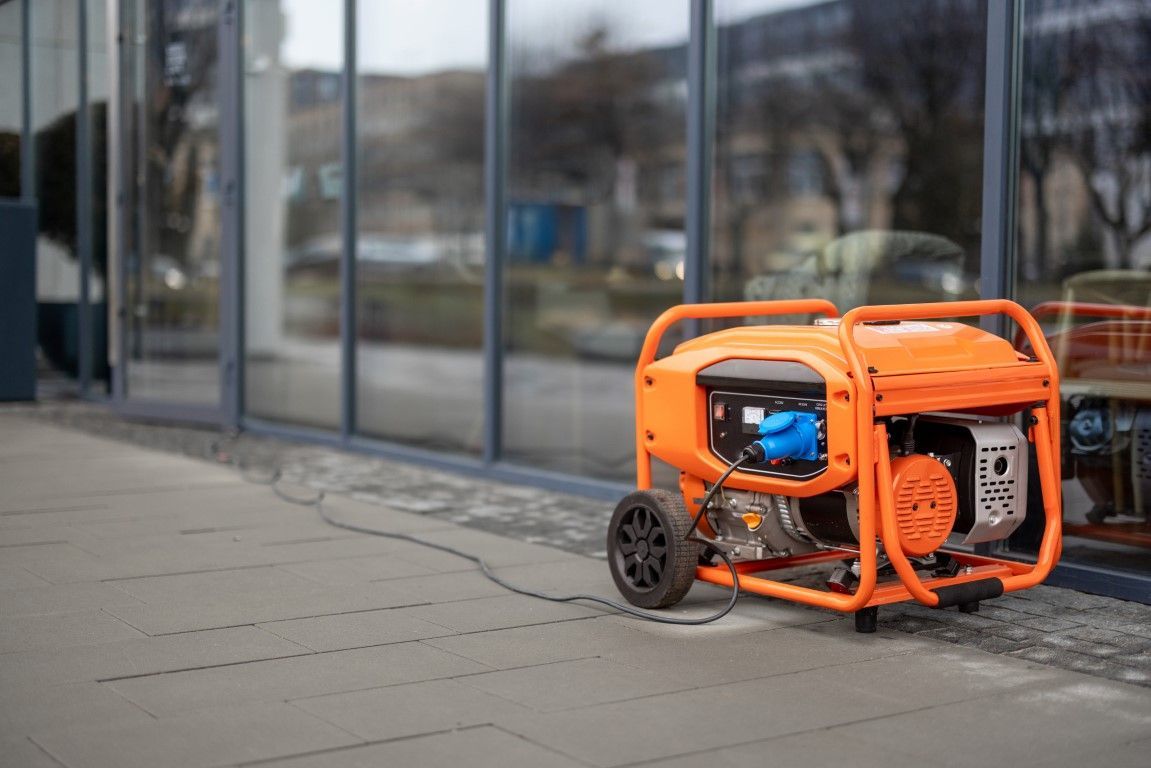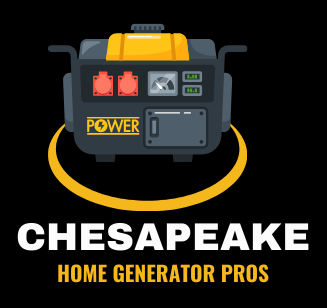Electric Generators in Chesapeake VA
Electric generators are machines that convert mechanical energy into electrical energy. They operate by using mechanical power, which is usually derived from engines running on various fuel sources. This mechanical power is then transformed into electrical energy through electromagnetic induction. The result is a reliable supply of electricity, especially in areas where the power grid might be unstable or unavailable.
Importance and Applications in Various Settings
Electric generators are vital for both residential and commercial purposes. In homes, they provide backup power during outages, ensuring that essential appliances and systems remain operational. This includes heating, cooling, refrigeration, and lighting. In commercial settings, generators are crucial for maintaining business operations during power interruptions. They are used in data centers to prevent data loss, in hospitals to ensure life-support systems continue running, and in construction sites to power tools and equipment.
Key Components
Electric generators consist of several key components:
- Engine: The engine is the primary source of mechanical power. It can be powered by gasoline, diesel, natural gas, or propane.
- Alternator: This component converts the mechanical energy from the engine into electrical energy. It consists of a rotor and stator, which work together to generate electricity.
- Fuel System: This includes the fuel tank, fuel pump, and fuel filter, which supply and manage the fuel needed for the engine.
- Cooling System: Generators use a cooling system, often consisting of a radiator and fan, to prevent overheating.
- Control Panel: This panel allows the user to start and stop the generator and monitor its performance, including voltage, frequency, and operating hours.
- Exhaust System: This system directs exhaust gases away from the generator and minimizes noise.
Fuel Options
Electric generators can run on several types of fuel:
- Gasoline: A common choice for smaller, portable generators due to its availability and lower cost.
- Diesel: Preferred for larger generators due to its efficiency and longer runtime. Diesel generators are often used in industrial and commercial applications.
- Natural Gas: Offers a clean and continuous fuel source, making it ideal for stationary generators in residential and commercial settings.
- Propane: Similar to natural gas in its clean-burning properties but typically used in areas where natural gas is not available. It’s often chosen for its long shelf life and reliability.

Proper Installation and Usage
Proper installation of an electric generator is crucial for ensuring its efficiency and safety. It should be installed by a licensed professional who can correctly connect the generator to the electrical system of your home or business. The installation site should be well-ventilated to prevent overheating and should be placed on a stable, level surface to avoid vibration damage.
When using a generator, follow the manufacturer’s guidelines to ensure proper operation. This includes:
- Load Management: Only connect essential appliances to avoid overloading the generator.
- Safe Operation: Never operate the generator indoors or in an enclosed space, as it produces carbon monoxide which is harmful.
- Start-up and Shutdown Procedures: Follow the recommended procedures for starting and shutting down the generator to maintain its longevity.
Regular Maintenance and Inspection
To keep your generator in optimal condition, regular maintenance and inspection are necessary. Key maintenance tasks include:
- Checking Oil Levels: Regularly check and change the oil as per the manufacturer’s recommendations.
- Inspecting the Air Filter: Clean or replace the air filter to ensure proper engine performance.
- Examining the Fuel System: Inspect fuel lines and connections for leaks or damage.
- Testing the Battery: Ensure the battery is charged and functioning correctly.
- Running the Generator: Periodically run the generator under load to keep it in good working condition.
Safety Precautions
Safety is paramount when operating an electric generator. Follow these precautions to avoid accidents:
- Ventilation: Always operate the generator in a well-ventilated area to prevent carbon monoxide buildup.
- Avoid Overloading: Do not exceed the generator’s capacity to prevent damage and potential hazards.
- Use Proper Extension Cords: Use heavy-duty extension cords rated for the generator’s wattage to prevent overheating and fire risks.
- Regular Inspections: Check for any signs of wear or malfunction before each use.
- Keep Children and Pets Away: Ensure that children and pets stay away from the generator to avoid accidents.
If you need more information about
electric generators in Chesapeake, VA or require installation and maintenance services, feel free to reach out to us. Our team of experts is ready to assist you with all your generator needs, ensuring you have a reliable power source for any situation. Contact us today to learn more or to schedule a consultation.
How Electric Generators Work
Electric generators are vital in supplying power to homes, businesses, and industries. They convert mechanical energy into electrical energy, ensuring a continuous power supply even during outages or in areas without access to the main power grid. Understanding how these devices work can help in choosing the right generator for your needs and maintaining it effectively. Electric generators operate based on a simple yet powerful principle: electromagnetic induction. Here’s a breakdown of how they function:
Basic Principle
At the core of an electric generator is Faraday’s Law of Electromagnetic Induction. This law states that a voltage is induced when a conductor moves through a magnetic field. Generators harness this principle to produce electricity.
Components
An electric generator typically consists of two main parts: the rotor and the stator.
Rotor
This is the rotating part of the generator. It is connected to the engine or turbine and is responsible for creating the magnetic field.
Stator
The stator is stationary and contains coils of wire. As the rotor spins, it creates a rotating magnetic field that passes through these coils.
Generating Electricity
As the rotor turns, it generates a magnetic field that moves through the stator coils. This motion induces a flow of electrons in the wire, creating an electric current. The amount of electricity generated depends on the strength of the magnetic field, the speed of the rotor, and the number of coils.
Types of Generators
Portable Generators
These are typically used for temporary power needs, such as during a camping trip or in emergency situations. They are powered by gasoline or diesel engines and are designed to be easily transported.
Standby Generators
These are installed permanently and automatically start when the power goes out. They are commonly used for homes and businesses that require a reliable backup power source.
Industrial Generators
These are larger and more powerful, designed to provide electricity to large facilities or multiple buildings. They are often fueled by diesel or natural gas and are capable of running for extended periods.
Maintenance and Care
To ensure that your generator functions efficiently, regular maintenance is essential. This includes checking the fuel levels, oil, and filters, as well as inspecting the generator for any signs of wear or damage. Keeping the generator clean and properly stored when not in use can also extend its lifespan.
Understanding how electric generators work can help you make informed decisions about your power needs and maintenance. If you have any questions or need assistance with choosing or maintaining a generator, feel free to reach out to us. Our team of experts is ready to help you find the perfect generator for your needs and ensure it runs smoothly for years to come. Contact us today for more information and support!
Key Types of Electric Generators
Electric generators are essential devices that convert mechanical energy into electrical energy. They play a crucial role in providing power for various applications, from powering homes and businesses to ensuring reliable operation during emergencies. Understanding the different types of electric generators helps in choosing the right one for your specific needs. In this article, we'll explore the key types of electric generators and their unique features.

Portable Generators
Portable generators are versatile and often used for temporary power needs. They are compact, easy to move, and typically run on gasoline. These generators are ideal for camping trips, outdoor events, or as backup power during a power outage. Despite their smaller size, portable generators can supply enough power to run essential appliances and tools.
Standby Generators
Standby generators are permanently installed and automatically turn on when the power goes out. They are powered by natural gas or propane and are connected to your home's electrical system. Standby generators are suitable for providing power to an entire home or business, ensuring that all critical systems remain operational during an outage. They offer the convenience of automatic operation and are designed to handle larger loads.
Inverter Generators
Inverter generators are known for their efficiency and quiet operation. They use advanced technology to produce clean and stable power, making them suitable for sensitive electronic devices like computers and medical equipment. Inverter generators are often used for recreational activities, RVs, and backup power for small appliances. They are fuel-efficient and can be used in parallel with other inverter generators to increase power output.
Industrial Generators
Industrial generators are designed for heavy-duty applications and can handle large loads. These generators are commonly used in industrial settings, construction sites, and large-scale events. They are available in various sizes and fuel types, including diesel and natural gas. Industrial generators are built to withstand harsh conditions and provide reliable power for critical operations.
Diesel Generators
Diesel generators are favored for their durability and efficiency, particularly in industrial and commercial settings. They use diesel fuel, which is readily available and cost-effective. Diesel generators are known for their high power output and long run times, making them suitable for applications that require continuous operation. They are often used in backup power systems, remote locations, and large facilities.
Gas Generators
Gas generators run on natural gas or propane and are commonly used in residential and commercial settings. They are less noisy compared to diesel generators and offer a cleaner burning fuel source. Gas generators are often used as backup power sources for homes and businesses, providing reliable performance and lower operational costs.
Hydrogen Generators
Hydrogen generators are an emerging technology that uses hydrogen fuel to produce electricity. They are environmentally friendly, as hydrogen is a clean fuel that only produces water as a byproduct. While still relatively new, hydrogen generators offer a sustainable alternative to traditional fossil fuel-powered generators. They are ideal for applications where reducing carbon emissions is a priority.
Wind Generators
Wind generators, or wind turbines, convert wind energy into electrical power. They are typically used in areas with consistent wind patterns and can be part of a larger wind farm or used individually. Wind generators are a renewable energy source and contribute to reducing reliance on fossil fuels. They are suitable for both residential and commercial applications in windy locations.
Solar Generators
Solar generators use solar panels to capture sunlight and convert it into electricity. They are a clean and renewable energy source, ideal for off-grid locations and sustainable living. Solar generators are available in various sizes, from small portable units to larger systems for home or business use. They are often used in combination with battery storage to provide power during times when sunlight is not available.
Choosing the right electric generator depends on your specific power needs, usage scenarios, and budget. If you need assistance in selecting the best generator for your requirements or have any questions about our products, please don't hesitate to contact us. Our team of experts is here to provide you with the information and support you need to make an informed decision. Reach out to us today for personalized advice and service.
